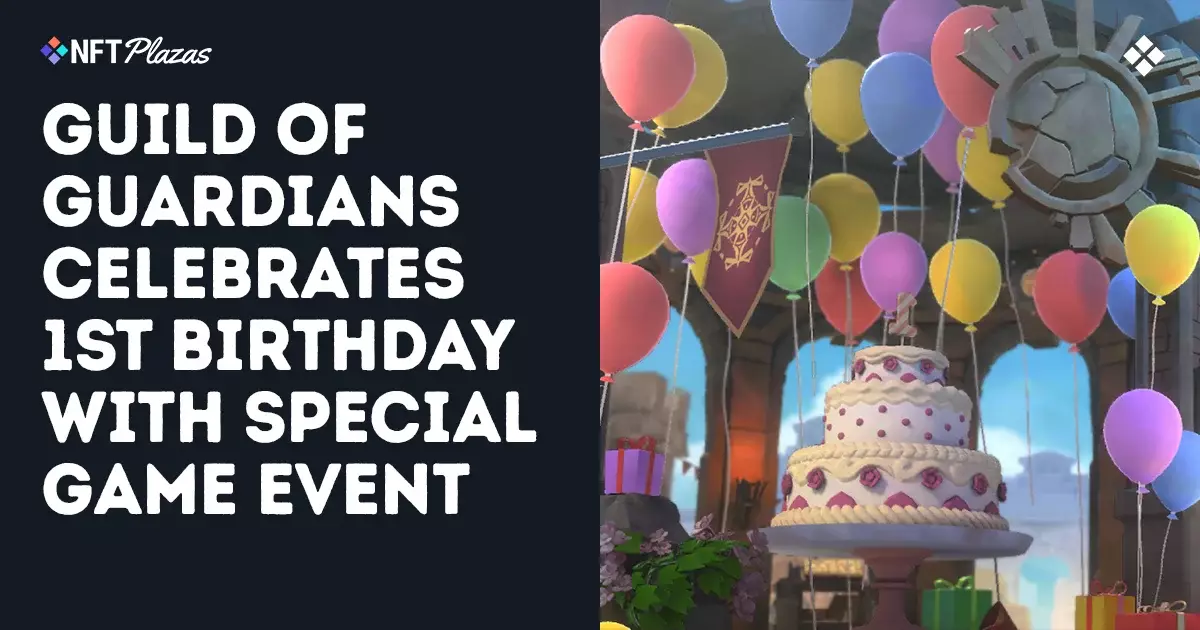The NFT gaming industry is booming, but this meteoric rise raises crucial questions about sustainability, accessibility, and genuine engagement. With Guild of Guardians reaching its one-year milestone, gamers are being lured into what may seem like a groundbreaking revolution in the gaming landscape. The flashy events and exclusive rewards promote a sense of excitement. Yet, a deeper analysis reveals a more troubling narrative lurking beneath the surface—one that takes this seemingly innovative gaming approach and casts a critical eye on its implications.
Playing an NFT-based game like Guild of Guardians may feel like you’re part of an elite club¸ but it is vital to scrutinize the motivations behind the enthusiasm. The game boasts the allure of item ownership through NFT technology, where players can trade in-game assets. While this might sound revolutionary, we risk overlooking the potential pitfalls. Are we really interested in deeper engagement, or are we merely seduced by the prospect of rare, tradable outfits and collectibles?
A Unique Gaming Experience or a Blockchain Gimmick?
Guild of Guardians sets itself apart by offering traditional RPG mechanics interwoven with blockchain technology. Gamers assemble teams for battle, fight dungeon monsters, and are rewarded for their skills. However, the integration of non-fungible tokens feels more like a gimmick than an enriching feature. Instead of focusing entirely on developing compelling storylines or diverse gameplay, companies might prioritize NFT elements in an effort to capitalize on current market trends. When gaming experiences pivot from creating immersive narratives to selling avatars and skins, we must ask ourselves: Are we really getting the content we deserve?
Yes, the event celebrating its first anniversary is rife with opportunities for rare skins and other coveted rewards. Still, it’s essential to consider who benefits most from these systems. Is it the players who are engaged in the event or is it the developers raking in profits from these transactions? The answer may reveal an uncomfortable truth regarding the ethics of monetizing a hobby as imaginative as gaming.
Event Exclusivity: A Double-Edged Sword
The Guild of Guardians anniversary event is framed as an incredible opportunity for players to unlock new experiences and rare items. Yet, the parameters for participation seem inherently exclusionary. For instance, to join the festivities, players must have completed Dungeon 1-1-3—a challenge that puts newcomers at a distinct disadvantage. Such mechanics emphasize that only committed early adopters can fully reap the benefits. This trend of exclusivity could potentially create a two-tiered system of players: those who can afford the time and skill to catch up and those who simply cannot.
Moreover, the tiered Anniversary Event Pass, which boasts both free and premium tracks, raises ethical concerns about accessibility in gaming. A price tag of $29.99 for significant rewards risks alienating players who may not have the financial means to invest their disposable income. Are we inadvertently establishing a pay-to-win model under the guise of an anniversary celebration? Such practices significantly disrupt the fundamentally community-oriented spirit that games like Guild of Guardians claim to embody.
Community and Engagement: The Reality Behind the Hype
The ongoing dialogue around NFT gaming often emphasizes community and engagement. Guild of Guardians attempts to deliver on this front through its various game modes, including PvE and PvP. Seasonal challenges and accessibility of battles could foster a sense of camaraderie. While camaraderie is an essential aspect of most RPGs, the increasing emphasis on NFT trading and collectibles might ultimately dilute the essence of community interaction. Conversations at virtual meetups may revolve around asset values rather than shared experiences and cooperative play which traditionally define successful gaming communities.
The allure of unique rewards and competitive rank can potentially overshadow the social connection that gaming brings. Gamers might find themselves caught in a whirlwind of trading rather than forging lasting relationships with fellow players—an essential element that gives videogames their value.
While Guild of Guardians has crafted an innovative gaming experience embellished with alluring NFT mechanics, it raises substantial questions about the future of gaming. As we celebrate these advances, we should be vigilant about the darker implications that come with them, questioning whether the community-created joy of gaming will be overshadowed by an insatiable drive for profit.

